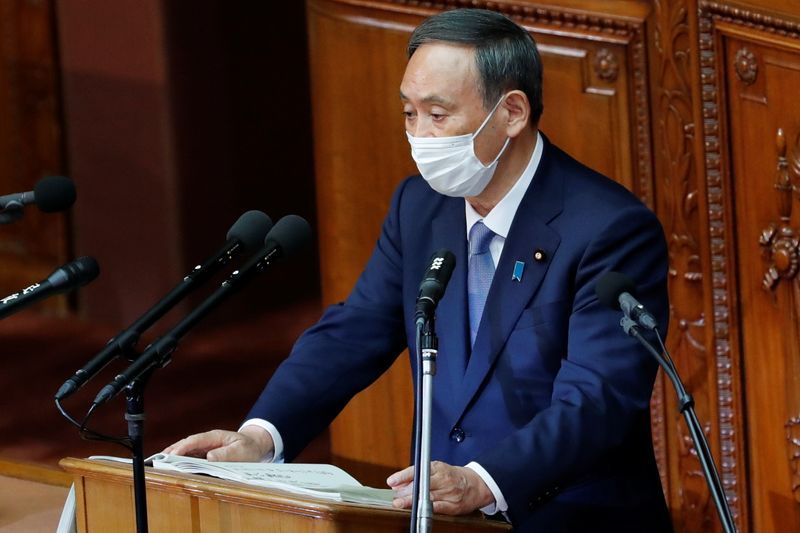

Japan is aiming to cut greenhouse gases to zero by 2050 and become a carbon-neutral society, Prime Minister Yoshihide Suga said on Monday as he unveiled a major shift in position on climate change.
Japan had previously said it would be carbon neutral as soon as possible in the second half of the century, rather than set an explicit date.
“Responding to climate change is no longer a constraint on economic growth,” Suga said in his first policy address to parliament since taking office last month.
“We need to change our thinking to the view that taking assertive measures against climate change will lead to changes in industrial structure and the economy that will bring about great growth.”
Japan’s target of no greenhouse gases emissions on a net basis by 2050 brings it into line with the European Union, which set a target of being carbon neutral by that same date last year. Chinese President Xi Jinping in September pledged to make his country “carbon neutral” by 2060.
Japan is the world’s fifth-biggest emitter of carbon dioxide, and while steps are being taken to increase renewable energy, it also plans to roll out new coal-burning power stations.
Later, Industry Minister Hiroshi Kajiyama told a news conference that plans for attaining key parts of the goal would be drawn up by the end of the year.
Guest post from Reuters




